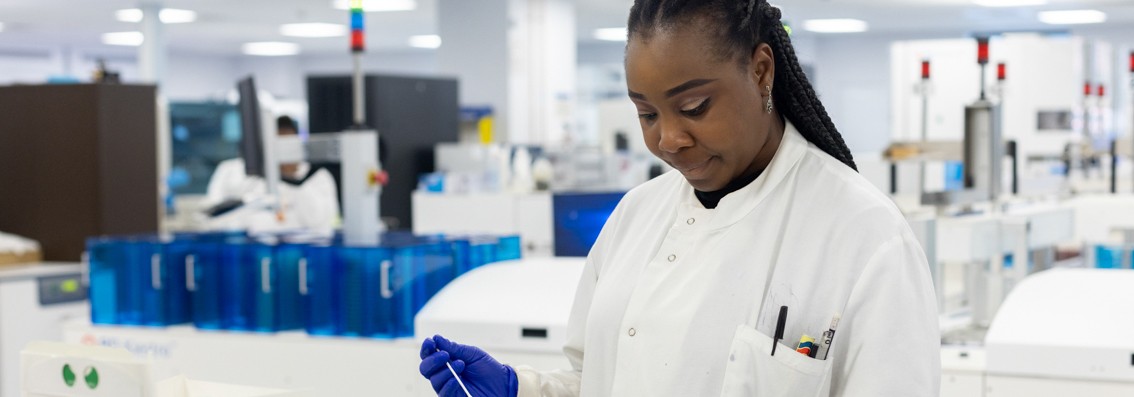Each year, the Research and Innovation team celebrate Homegrown research, studies and project that are born and bread at LUHFT.
As a research active organisation, we are proud to deliver cutting edge research to the communities we serve.
We also have strong relationships with surrounding NHS organisations which enables us to deliver specialist care through collaboration.
To find out more about research at LUHFT and how to take part, click here.

The Database for Atypical and Rare Fractures and Injuries (DARFI) is a national platform, allowing clinicians to share data from rare fractures and injuries.
DARFI was designed by Mr Abdul-Ragman Gomma, a clinical research fellow at LUHFT, and Professor Lyndon Mason, Musculoskeletal System Lead, Orthopaedic Specialty Lead, who determined there was a gap in shared knowledge of rare fractures.
The pair began the journey of creating a national database alongside the LUHFT sponsorship team, that would allow research to be shared across different NHS organisations.
There are currently two research trials running as part of the DARFI platform, FACT-1, and UK DRUID.
FACT-1
The Fact-1 study looks at fractures of the Talus, a bone that makes up the lower part of the ankle joint. A fracture to this causes significant loss of function to the ankle and are mostly cause by high impact injuries.
This study will look at factures treated within the last ten years. The aim is to identify the risk fractures of complications caused by this injury and guide the best treatment.
UK DRUID
The UK Druid study looks at Distal Radial Ulnar Joint (DRUJ) dislocation, which is a joint that allows movement to the wrist. This condition can cause significant upper limb function.
The study aims to understand more about these rare fractures and the most effective way to treat them.
The DARFI platform will allow knowledge to be shared by clinical professionals and specialists in orthopaedics to allow for better patient care and outcomes.
The NOTE-AF study is currently in the development stage and will look at how a device can be used to predict and help prevent Atrial Fibrillation (AF).
AF affects around 1.4 million people in the UK and disrupts the rhythm and rate of the heart.
It is not known what causes this condition however there is some research suggesting it could be caused by lifestyle factors and is most common in people living with chronic long-term conditions such as heart disease.
The NOTE-AF study looks at acutely unwell patients, monitoring short bursts of AF and a patient’s heart rate so that the information can be used to develop risk prediction models and identify patients at high risk for stroke.
Clinician’s will identify patients who are at high risk of AF and fit them with a wearable device that will continually track their heart rate. This will allow clinician to predict if a patient will suffer from AF and be able to intervene before this happens.
The study is currently being led by Professor Ingeborg Welters, Honorary Critical Care Consultant at LUHFT and Clinical Academic at the University of Liverpool.
Clinicians in the Critical Care department at Liverpool University Hospitals NHS FT are partnering with the digital platform COGNISHINE to find digital ways to support the delivery of healthcare.
The initial trial will look at the delivery of treatment for patients with cognitive and linguistic complications after suffering neurological damage. This will allow patients and clinicians to use a web-based platform to continue rehabilitation in and outside of the clinical setting.
Services such as Stroke will be one of the first areas to use this platform to help deliver on the Trusts vision for patient care and outcomes.
Dr Vinoth Sankar, Critical Care consultant at Deputy Director of Innovation at LUHFT, is leading on this research and hopes it can improve clinical capacity of staff whilst delivering efficient patient care.

